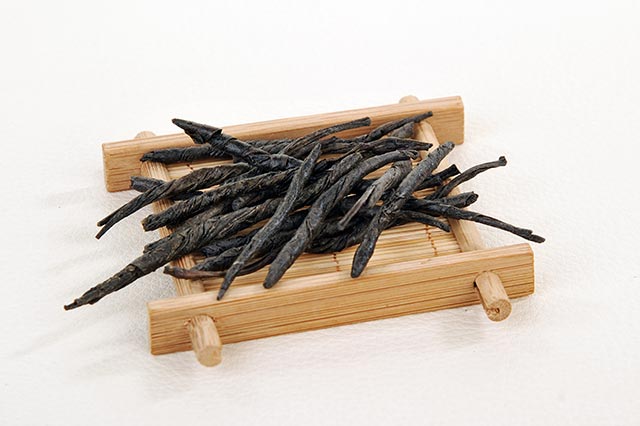Modern TCM shows promise against liver cancer metastasis
12/02/2019 / By Evangelyn Rodriguez

Liver cancer is one of the deadliest types of human cancer. Hepatocellular carcinoma (HCC), which often occurs in patients with already existing liver disease, is considered the most common form of liver cancer. One of the main characteristics of HCC is its tendency to migrate or metastasize to the lungs. Metastasis of cancer cells involves a process called epithelial-mesenchymal transition (EMT), wherein epithelial cells undergo phenotypic changes to resemble mesenchymal cells — stem cells capable of turning into different types of adult cells. EMT not only increases the motility of cancer cells, but it also makes them more invasive. Hence, the inhibition of EMT is now considered a promising strategy for stopping cancer metastasis.
In a study published in the journal BMC Complementary and Alternative Medicine, researchers from Shanghai University of Traditional Chinese Medicine evaluated the effects of a modern TCM formulation on EMT. They developed this herbal formula, which they called yanggan jiedu sanjie (YGJDSJ), as a treatment for HCC. The researchers found that YGJDSJ can decrease the expression of proteins important for metastasis, making it a promising natural medicine for metastatic liver cancer.
The components of YGJDSJ have EMT-inhibitory properties
The modern TCM formulation YGJDSJ is composed of different medicinal herbs, some of which have shown the ability to inhibit EMT in cancer cells in numerous experiments. According to previous studies, each of these herbs possesses an active compound that contributes to its inhibitory activity. The following herbs can be found in YGJDSJ:
- Ligustrum lucidum (glossy privet or nu zhen zi) — According to research, L. lucidum leaf extract exhibits anti-tumor activity against HCC in vitro and in vivo.
- Duchesnea indica (mock strawberry or she mei) — A recent study reported that D. indica extracts could inhibit highly metastatic lung adenocarcinoma cells by down-regulating EMT-related proteins.
- Solanum nigrum (black nightshade or long kui) — The active component of this herb, a-solanine, can suppress EMT by decreasing the expression of vimentin, a mesenchymal protein marker.
- Scutellaria barbata (barbed skullcap or ban zhi lian) — This herb contains a polysaccharide called SPS2p that can increase the expression of E-cadherin, a mediator of cell adhesion. Loss of E-cadherin-mediated adhesion leads to the development of metastatic cancer. (Related: Study finds that a traditional Chinese medicine is effective at treating liver cancer.)
- Euphorbia helioscopia (madwoman’s milk or ze qi) — Like L. lucidum, E. helioscopia can stop tumor growth, induce cell death, and inhibit the metastasis of HCC in vivo.
- Ranunculus ternatus (catclaw grass or mao zhua cao) — Research suggests that medicinal plants from the genus Ranunculus have potent anti-cancer activities.
- Curcuma wenyujin (yu jin) — This species of turmeric has an active compound called B-elemene, which can reverse the malignancy of human glioblastoma or brain tumors.
- Polygonum cuspidatum (Japanese knotweed or hu zhang) — The anti-tumor and anti-metastatic properties of P. cuspidatum come from the ability of its active component, resveratrol, to stop DNA synthesis in cancer cells.
Modern TCM YGJDSJ can inhibit the activities of a protein heavily involved in EMT
Transcription growth factor-beta 1 (TGF-B1) is a protein involved in many cellular functions. TGF-B1 signaling also plays an important role in tumor progression and EMT. To determine the effects of YGJDSJ on TGF-B1-induced EMT, the researchers tested the formula on Bel-7402 liver cancer cells.
They identified EMT by observing cell morphological changes under a microscope, and by confirming the expression and phosphorylation of protein markers using Western Blot. They also used the scratch assay to measure cell migration and a commercial kit to detect cell adhesion and invasion.
The researchers reported that YGJDSJ treatment reversed the morphological changes (from epithelial to mesenchymal) induced by TGF-B1 and the expression of EMT markers. YGJDSJ also inhibited TGF-B1 up-regulated Smad3 phosphorylation and Snail expression, as well as TGF-B1-induced cell adhesion, migration, and invasion. Smad3 and Snail are both regulators of signaling pathways that lead to EMT.
Based on these findings, the researchers concluded that YGJDSJ could inhibit TGF-B1-induced EMT and mediates the metastatic potential of liver cancer cells by down-regulating Smad3 phosphorylation and Snail expression. These activities may be used for the prevention of liver cancer metastasis.
Sources include:
BMCComplementAlternMed.BioMedCentral.com
Tagged Under: alternative medicine, cancer cures, Chinese medicine, disease treatments, herbal medicine, Herbs, natural cures, natural medicine, phytonutrients, prevention, remedies, research, TCM
RECENT NEWS & ARTICLES
COPYRIGHT © 2017 PREVENTION NEWS



















